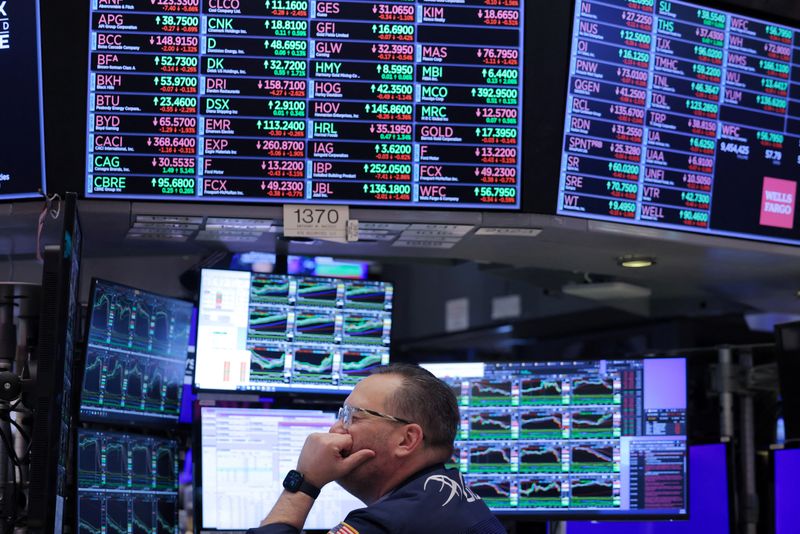Trump to impose 100% tariff on China starting November 1
Investing.com -- Bank of America (BofA) said money market funds took in $106.7 billion in the week to Aug. 6, the largest since January.
Bonds drew $28.5 billion, the biggest combined investment-grade and high-yield inflow since June 2020.
Gold saw $200 million in redemptions, while crypto funds lost $1.9 billion, the largest since March.
Equities had $41.7 billion in outflows, which BofA said were entirely due to abnormal liquidation redemptions from three U.K.-domiciled funds on July 31.
BofA strategists led by Michael Hartnett said the “Magnificent 7” plus Broadcom (NASDAQ:AVGO), Oracle (NYSE:ORCL) and Palantir (NASDAQ:PLTR) have generated 80% of S&P 500 returns since “Liberation Day."
This outperformance is driven by concentrated U.S. stock gains, a pro-monopoly “America First” policy, and AI’s potential to disrupt the labor market, the team said.
They expect the trend to persist until technology credit spreads widen, which would signal AI cash burn risks and threaten what they called the “AI overbuild” trade, echoing the late-1990s tech bubble.
Hartnett also said the prevailing market view is a “Goldilocks consensus,” with 60% of clients expecting “rates down = stocks up,” supported by a 95% market-implied probability of a September Fed rate cut and a 12% increase in forward S&P 500 EPS forecasts to $285.
Another 30% of clients see an “inflation boom/bubble” risk, where “stocks up = yields up,” a scenario Hartnett also called the “U.S. dollar debasement trade.”
Only 10% expect stagflation, and none see deflation as a near-term risk.
On gold, Hartnett maintained a bullish long-term stance, despite noting that “peace not war” conditions are typically gold bearish. He argued that “everything else” points to higher gold and crypto prices, as investors may need to hedge what he described as Trump’s push for economic “boom & bubble” ahead of the midterm elections.
Hartnett sees gold benefiting in the 2020s from persistent inflation, geopolitical isolationism, tighter immigration, greater state intervention, reduced central bank independence, and the likelihood that central banks — which hold 20% of global FX reserves in gold — may be forced to revalue reserves to reduce domestic debt burdens.
By region, U.S. equities saw $27.7 billion in outflows in the past week, Europe $700 million, emerging markets $3.6 billion, and Japan $3.1 billion.
In fixed income, investment grade funds had $19.3 billion of inflows, high yield $2.9 billion, Treasuries $1.7 billion, bank loans $1.1 billion, and EM debt $1.7 billion, marking a 16th consecutive week of gains.
